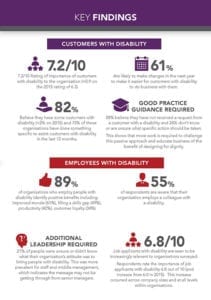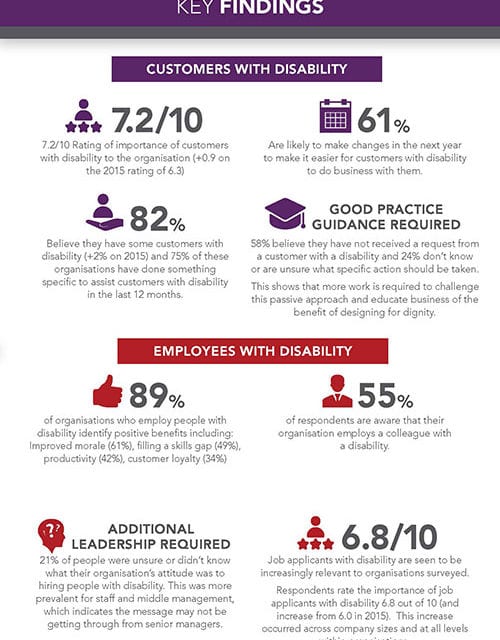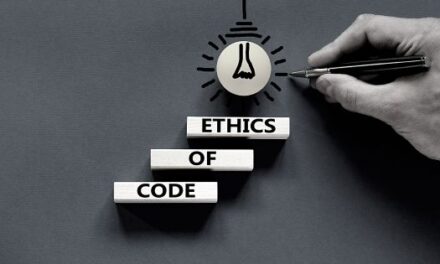 Launched today, the Australian Network on Disability (AND)’s second annual Disability Confidence Survey report, indicates a small but positive shift in the attitude of small and medium sized enterprises (SME)’s to customers and employees with disability.
Launched today, the Australian Network on Disability (AND)’s second annual Disability Confidence Survey report, indicates a small but positive shift in the attitude of small and medium sized enterprises (SME)’s to customers and employees with disability.
The results are encouraging, however revelations from the Australian Human Rights Commission (AHRC) indicates that the highest level of complaints they receive are about disability discrimination; and their Willing to Work enquiry, tells us there has been no improvement in the employment participation rate for people with disability over the past 20 years.
According to Suzanne Colbert AM, Chief Executive of AND, it is clear that positive attitude doesn’t lead to positive action.
“Australian businesses can do much more to improve the experience of people with disability who are attempting to access jobs, products and services. With one in five Australians experiencing disability during their lifetime, it is vital that business take a more proactive approach to welcoming this important part of our community,” she said.
Alarmingly, the survey reveals a passive approach to welcoming people with disability. While 82% believe they have some customers with disability, 42% have not taken action because they have not received any request to do so; and a further 24% don’t know what action can be taken. This is something that is reflected in the lived experience of countless people with disability.
Amanda Lawrie-Jones, from Victoria says;
“As a customer, I tend to stick to places I know I am going to get good service and can access. If I have to go somewhere new I will phone in advance to check their accessibility, but that doesn’t always work out. I have arrived at many restaurants with a flat entry but a step into their split level dining area that I am unable to access in my wheelchair.”
Rania Saab, family law solicitor and AND Board Member from Sydney says;
“I will not be loyal or give my patronage to an organisation that discriminates against me by failing to provide me with the assistance (as a customer) or adjustments (as an employee) that I need. It is in our nation’s interest that people with disability are fully included and integrated in society and have equal access to all services across all industries.”
In contrast, the experience of 55% of businesses that are aware that they have employees with disability is overwhelmingly positive. Almost 90% identify positive benefits from improved staff morale to increased customer loyalty.
Ms Colbert supports this insight.
“At AND, we know that welcoming customers and employees with disability is good for business. We hear positive stories from our members all the time. What we need to do now is spread that message and encourage others to be proactive about welcoming people with disability.”
Businesses wanting to create a competitive edge can complete a short self-assessment that will help identify areas to improve. It is part of a suite of management tools called the Access and Inclusion index and is available from AND’s website, www.and.org.au.
In addition, AND has a number of other publications and resources available to support businesses to become more welcoming to customers and employees with disability. Call 1300 363 645, email info@and.org.au or visit www.and.org.au for more information.
About the survey
The Disability Confidence Survey is the only study of its kind in Australia. It investigates the attitude and awareness of 500 small to medium sized enterprises (SME’s) on welcoming customers and employees with disability.
About the Australian Network on Disability
Founded in 2000, the Australian Network on Disability is a national, membership based, for-purpose organisation, that aims to advance access and inclusion of people with disability in all aspects of Australian business, including; employment, customer service, stakeholder relations and supply of goods.
Member organisations have access to a network of highly skilled relationship managers and training consultants, who are experts in providing training, advice and resources to support disability access and inclusion.
























